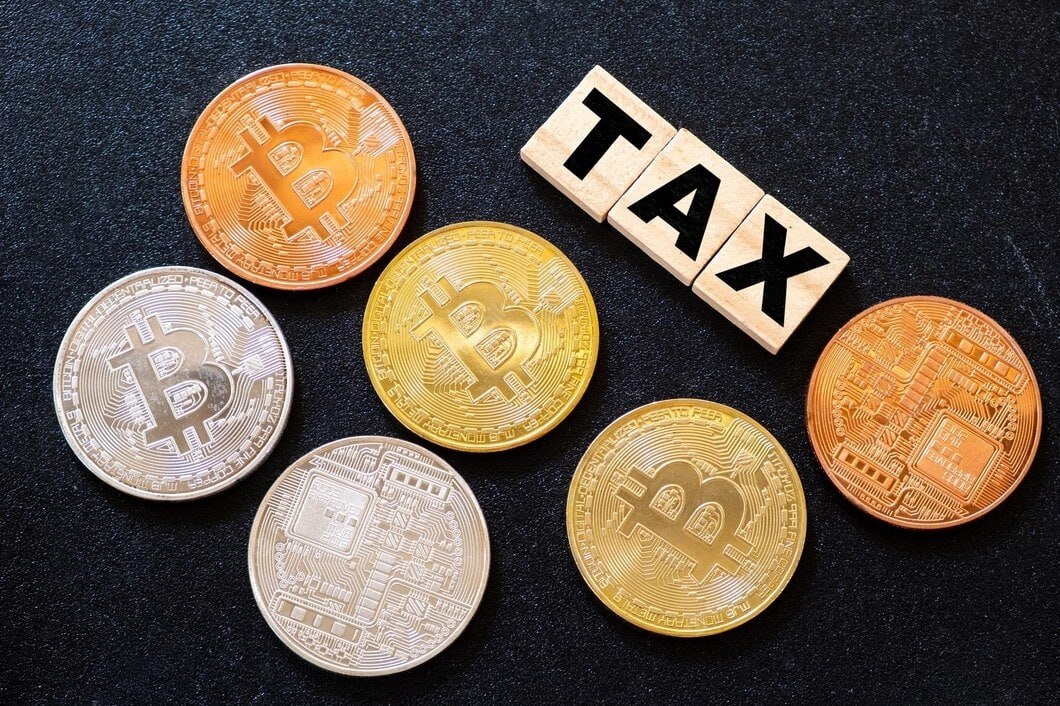Cryptocurrency has revolutionized the world of finance, offering decentralized and secure transactions that bypass traditional banking systems. As the popularity of cryptocurrencies like Bitcoin continues to soar, governments worldwide are grappling with how to regulate and tax these digital assets. However, a few countries have taken a different approach by creating a tax-friendly environment for cryptocurrency investors.
This article will explore the intriguing question, "Which country has no tax on cryptocurrency?". We will delve into the global landscape of cryptocurrency taxation, discuss the benefits of tax-free cryptocurrency, and examine the factors individuals should consider before relocating to a tax-friendly nation.
Cryptocurrency enthusiasts and investors are constantly seeking jurisdictions where they can maximize their gains without the burden of heavy taxes. The allure of a tax-free environment for cryptocurrencies lies in the potential for increased profitability and the ability to retain a more significant portion of investment returns. In addition, individuals can make informed decisions about their investments and financial strategies by understanding which countries offer favorable tax policies for cryptocurrencies.
The Global Landscape of Cryptocurrency Taxation
Cryptocurrencies have disrupted the traditional financial landscape, offering individuals a decentralized and secure means of conducting transactions. However, the emergence of cryptocurrencies has also raised important questions regarding taxation and regulation. So, which country has no tax on cryptocurrency?
Regulatory Evolution
The regulatory landscape for cryptocurrencies has evolved rapidly over the years. Initially, many governments needed help to develop comprehensive frameworks to address the unique characteristics of digital currencies. However, as the popularity and adoption of cryptocurrencies increased, regulatory bodies began taking proactive measures to establish guidelines.
Countries like the United States, Japan, and Switzerland have implemented regulations to clarify cryptocurrencies' legal and tax treatment. These regulations aim to protect investors, prevent illicit activities, and promote innovation within the industry.
Taxation Models: Approaches and Challenges
Tax authorities worldwide have grappled with the task of taxing cryptocurrencies effectively. As a result, different countries have adopted diverse taxation models, each with its challenges. The most common approaches include treating cryptocurrencies as property, currency, or a separate asset class.
Valuing cryptocurrencies for tax purposes presents a significant challenge. These assets' volatility and decentralized nature make it difficult to determine their fair market value accurately. Additionally, tracking cryptocurrency transactions and ensuring compliance with tax obligations pose further complexities for tax authorities.
Tax Implications of Cryptocurrency Transactions
Cryptocurrency transactions encompass various activities, including buying, selling, and trading. The tax implications for each type of transaction may vary depending on the jurisdiction. Individuals acquiring cryptocurrencies may trigger tax events, such as capital gains or losses, which must be reported to tax authorities.
Furthermore, businesses engaged in cryptocurrency-related activities, such as mining or operating exchanges, may be subject to additional tax obligations, including income tax and value-added tax (VAT).
Controversies and Debates
The taxation of cryptocurrencies has sparked debates and controversies worldwide. One of the critical areas of contention is whether cryptocurrencies should be treated as property, currency, or a unique asset class. The classification of cryptocurrencies has significant implications for tax liabilities and reporting requirements.
Moreover, the enforcement of tax compliance in the cryptocurrency space presents challenges for authorities. For example, the pseudonymous nature of blockchain transactions raises questions about privacy and the potential for tax evasion. So, which country has no tax on cryptocurrency?
Tax-Friendly Jurisdictions: Incentives and Advantages
As the regulatory landscape evolves, some countries have recognized the benefits of attracting cryptocurrency investors by adopting tax-friendly policies. These jurisdictions aim to create an environment encouraging innovation, investment, and economic growth within the cryptocurrency industry.
Tax-friendly jurisdictions offer advantages such as reduced or zero taxes on cryptocurrency holdings, capital gains, or income generated from cryptocurrencies. These incentives attract investors seeking to maximize their returns and retain a more significant portion of their profits.
Exploring Tax-Friendly Countries for Cryptocurrency Investors

Cryptocurrency investors are constantly seeking jurisdictions that offer favorable tax policies and regulations. These tax-friendly countries provide an attractive environment for individuals and businesses involved in cryptocurrency. So let's discover which country has no tax on cryptocurrency.
Switzerland: The Crypto Valley
Switzerland has gained a reputation as the "Crypto Valley" due to its progressive regulatory approach and favorable tax environment for cryptocurrencies. The Swiss government has embraced blockchain technology and cryptocurrencies, fostering a thriving ecosystem for innovation and investment. Furthermore, individuals and businesses operating in the crypto industry can benefit from Switzerland's favorable tax policies, including tax exemptions for specific cryptocurrencies and a clear framework for initial coin offerings (ICOs). As a result, Zug, a small town in Switzerland, has emerged as a global hub for blockchain and crypto-related businesses.
Malta: The Blockchain Island
Malta, often called the "Blockchain Island," has positioned itself as a leader in embracing blockchain technology and cryptocurrencies. The Maltese government has enacted several crypto-friendly regulations, including the Malta Digital Innovation Authority Act and the Virtual Financial Assets Act. These laws provide a robust legal framework for cryptocurrency businesses and offer tax incentives and exemptions for crypto-related activities. Malta's proactive approach has attracted numerous blockchain companies and investors looking for a favorable tax and regulatory environment.
Singapore: Asia's Crypto Hub
Singapore has established itself as a leading financial and technological hub in Asia, embracing cryptocurrencies and blockchain technology. The Singaporean government has implemented supportive cryptocurrency regulations, clarifying taxation and creating a conducive environment for crypto-related businesses. Singapore offers tax benefits for individuals and companies involved in cryptocurrency activities, including exemptions for certain crypto transactions. With its reputation for innovation and robust infrastructure, Singapore has become a key destination for crypto investors in Asia.
Portugal: Tax Breaks for Crypto Investors
Portugal has become an appealing destination for cryptocurrency investors due to its favorable tax regime. The country offers tax breaks for crypto investors and traders, particularly under the Non-Habitual Resident (NHR) regime. This regime allows qualifying individuals to benefit from a flat income tax rate for certain types of crypto-related income. Portugal's attractive tax incentives, vibrant tech scene, and quality of life have made it an increasingly popular choice for digital nomads and crypto enthusiasts.
Cayman Islands: Offshore Haven for Cryptocurrencies
The Cayman Islands is renowned for its tax-neutral status, making it an attractive destination for cryptocurrency investors. The jurisdiction offers a favorable regulatory environment and a robust legal framework for cryptocurrency funds and entities. Many blockchain companies establish their operations in the Cayman Islands due to their reputation as a secure and business-friendly offshore haven. The absence of direct taxes on capital gains and cryptocurrencies further enhances its appeal to crypto investors.
United Arab Emirates: Tax-Free Crypto Environment
The United Arab Emirates (UAE) has taken a progressive approach to blockchain technology and cryptocurrencies. The UAE offers a tax-free environment for cryptocurrencies and capital gains, providing a favorable landscape for crypto investors. Dubai, in particular, has emerged as a leading business hub for blockchain and cryptocurrency-related ventures. The UAE's forward-thinking initiatives, strategic location, and robust infrastructure make it an enticing option for cryptocurrency investors.
So, which country has no tax on cryptocurrency? The best crypto tax-friendly countries are the Cayman Islands and the United Arab Emirates!
Choosing the Right Tax-Friendly Country for Your Crypto Activities
Now that we've discovered which country has no tax on cryptocurrency let's analyze other elements. Several factors come into play when considering tax-friendly countries for your cryptocurrency activities. So, we will explore the key considerations that can help you make an informed decision and maximize the benefits of operating in a tax-friendly jurisdiction.
Tax Policies and Regulations
The first factor to consider is the tax policies and regulations of the country. Look for jurisdictions that offer favorable tax treatment for cryptocurrencies, such as exemptions on capital gains or reduced tax rates on crypto-related income. Understanding which country has no tax on cryptocurrency and the specific tax laws and regulations will enable you to optimize your tax obligations and maximize your returns.
Regulatory Environment and Stability
A stable and supportive regulatory environment is crucial for the long-term viability of your cryptocurrency activities. Look for countries with clear and comprehensive regulations that provide legal certainty and protect investors. Countries with proactive regulatory bodies and a track record of supporting innovation in the crypto space are ideal choices.
Infrastructure and Access to Crypto Services
Consider the infrastructure and access to crypto services in the country you are evaluating. Look for jurisdictions with well-established financial systems, reliable banking services, and a robust crypto ecosystem. In addition, the availability of crypto exchanges, liquidity providers, and related services can significantly enhance your ability to hold, trade, and utilize cryptocurrencies.
Network and Community
Evaluate the network and community surrounding cryptocurrencies in the country, not only which country has no tax on cryptocurrency. Look for jurisdictions with a vibrant and active crypto community that can provide networking opportunities, support, and collaboration within the industry. Engaging with like-minded individuals and organizations can contribute to your overall success and growth in the crypto space.
Lifestyle and Quality of Life
Consider the lifestyle and quality of life offered by the tax-friendly country you are considering. Factors such as cost of living, healthcare, education, and overall livability play an essential role, especially if you plan to relocate or establish a physical presence in that country. A favorable tax environment and a high quality of life can provide a well-rounded experience for crypto enthusiasts.
The Power of PlasBit Cards and Wallets: Enhancing Security and Convenience
Crypto debit cards have emerged as a powerful tool for crypto enthusiasts, offering a secure and convenient way to hold and utilize digital assets. We will explore the concept of crypto debit cards and highlight the advantages of using our PlasBit's innovative solutions for seamless crypto transactions.
Understanding Crypto Debit Cards
Crypto debit cards function similarly to traditional ones, allowing users to purchase and withdraw cash using their cryptocurrency holdings. In addition, you can load your card through your PlasBit wallet, enabling the conversion of cryptocurrencies into fiat currencies. This functionality bridges the gap between the crypto and traditional financial systems, making cryptocurrencies more accessible for everyday transactions.
Security
Our wallets and cards prioritize security protecting users' funds and personal information. Our services incorporate robust security features, such as multi-factor authentication and encryption, to safeguard against unauthorized access. Moreover, transactions made with PlasBit's cards are discreet, preserving the user's privacy in an increasingly digitized world.
Convenience and Flexibility
Our services offer unparalleled convenience, allowing users to spend their cryptocurrencies seamlessly at millions of locations worldwide. In addition, with our wallets and cards, users can enjoy the flexibility of holding multiple cryptocurrencies in a single card, such as Bitcoin, Ethereum, and Litecoin. This versatility enables users to diversify their holdings and easily switch between digital assets based on their preferences and market conditions.
Worldwide Acceptance
Most online and offline merchants accept our Visa debit cards, ensuring users can utilize their digital assets wherever traditional payment cards are accepted. In addition, the global acceptance of these cards eliminates the need for users to exchange their cryptocurrencies for fiat currencies, streamlining the spending process and reducing transaction costs.
Real-Time Transaction Tracking and Reporting
At PlasBit, our Exchange and features provide users with real-time transaction tracking and reporting features. As a result, users can easily monitor their spending, view transaction histories, and generate reports for accounting or tax purposes. This functionality enhances transparency and helps users manage their crypto finances effectively.
Seamless Integration with our Platform
Users can use our PlasBit cards to take advantage of the seamless integration with our platform. This integration allows for easy management of crypto holdings, instant card loading, and access to additional features and services we provide. As a result, users can enjoy a comprehensive ecosystem that combines the security and convenience of crypto debit cards with innovative solutions.
In conclusion, the combination of tax-friendly jurisdictions and our debit cards and wallets provide a robust framework for individuals and businesses to thrive in cryptocurrencies. Whether you are an investor, trader, or enthusiast, embracing the advantages of tax-friendly countries and leveraging innovative solutions will enable you to navigate the crypto landscape confidently, securely, and conveniently.
Start your journey today by exploring tax-friendly countries and experiencing the benefits of our platform. Join us as we unlock the potential of tax-friendly crypto environments and embark on a new era of digital financial freedom.







